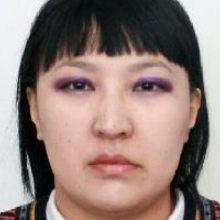
Arayly Sarsembayeva
Work place: Department for International Cooperation, D. Serikbayev East Kazakhstan technical university, Ust-Kamenogorsk 070004, Kazakhstan
E-mail: araily@mail.ru
Website: https://orcid.org/0000-0003-2239-8358
Research Interests:
Biography
Arayly Sarsembayeva is Vice-Rector for International Cooperation at D. Serikbaev East-Kazakhstan technical University, where she has worked since 1998. Over the years, she has served as a teacher and later head of the Department of Foreign Languages, Dean of the Faculty of Humanitarian Education, and now holds a senior leadership role. She holds a Candidate of Pedagogical Sciences degree (2008) in Theory and Methodology of Professional Education from Karaganda University named after Buketov. She also earned a degree in Foreign Languages from S. Amanzholov East-Kazakhstan State University (1994–1998) and completed a management program at D. Serikbaev EKSTU (2018–2020). She has completed research internships at the Technical University of Dresden and the Technical University of Berlin (DAAD), and has been a regular participant in international seminars and forums hosted by the Goethe Institute since 2008. Her research interests include professionally oriented foreign language teaching, the implementation of trilingual education in Kazakhstan‘s universities, and informal education.
Author Articles
The Influence of an Adaptive Non-Formal Education Model on Student Learning Activity and Engagement
By Tulebike Kulgildinova Araily Sarsembayeva Darya Surova Indira Kalelova Meruyert Zhaizhatyrova Saniya Nurgaliyeva
DOI: https://doi.org/10.5815/ijmecs.2025.05.06, Pub. Date: 8 Oct. 2025
In the context of ongoing digitalization and the growing importance of non-formal education in Kazakhstan’s higher education system, there is an increasing demand for adaptive educational models that address students' individual learning needs and broaden the scope of academic engagement. This study examines the effects of an adaptive non-formal education model on students' learning activity and engagement, and identifies the model components with the most significant impact. A quantitative quasi-experimental design was employed, involving pre- and post-intervention assessments using validated questionnaires. Key indicators included participation in supplementary educational activities, online learning platforms, external courses, and project-based or volunteer initiatives. The results indicate a statistically significant improvement in students’ educational involvement in the experimental group, as demonstrated by increased participation in external learning events, greater self-directed learning, and the development of personalized educational trajectories. The study highlights the potential of adaptive non-formal education as a strategic tool to enhance institutional flexibility and student motivation. Its novelty lies in testing a context-sensitive adaptive non-formal education model tailored to Kazakhstan’s institutional realities. The findings contribute to the global discourse on flexible education strategies and suggest directions for scaling and integrating the model into digital academic ecosystems.
[...] Read more.Other Articles
Subscribe to receive issue release notifications and newsletters from MECS Press journals